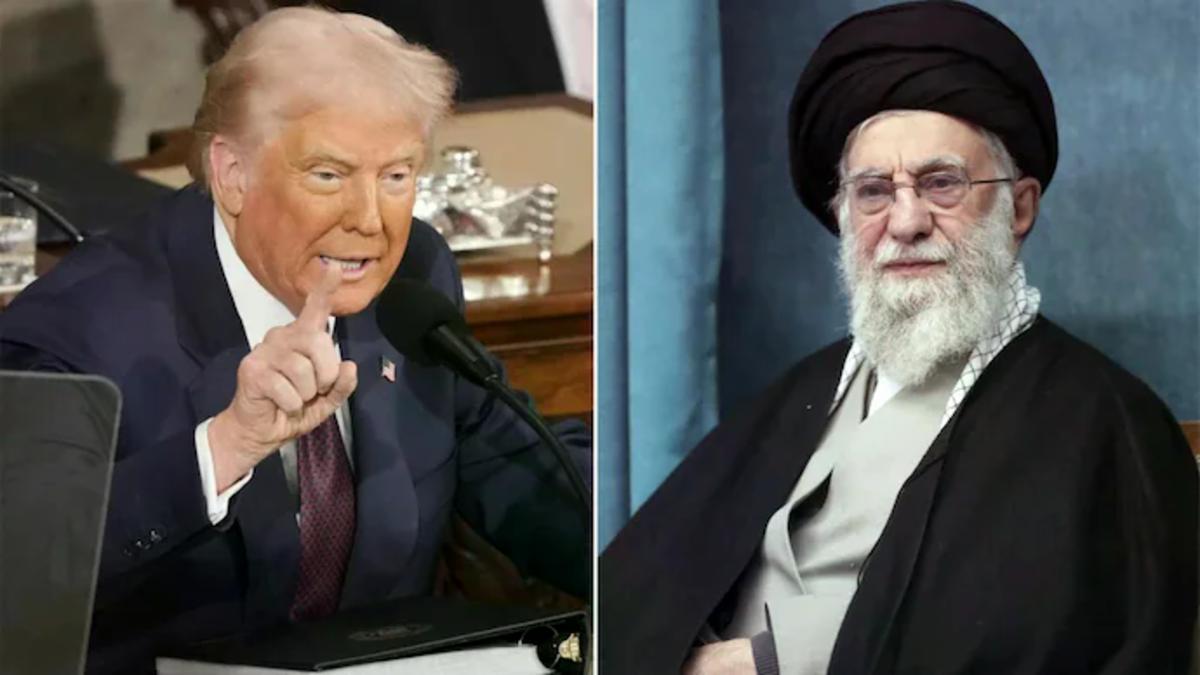Article Body
In a fiery escalation of Middle East tensions, Iran has issued a stern warning to the United States after former U.S. President Donald Trump reiterated his threat to bomb Iranian nuclear sites if diplomacy fails. Tehran’s response, published by state-run Fars News Agency, called Trump’s remarks a violation of international norms and declared such threats as “crossing a red line.”
“अगर अमेरिका ने इस भाषा को नहीं छोड़ा, तो नतीजे भुगतने होंगे,” — ईरानी विदेश मंत्रालय के प्रवक्ता सईद खतीबजादे ने फार्स न्यूज को बताया।
🧨 What Trump Said: Renewed Threats Amid Rising Global Tensions
Speaking at a Republican town hall in Florida on Thursday night, Trump asserted that if re-elected, he would not hesitate to strike Iran’s nuclear facilities, stating:
“We gave diplomacy a chance. But if Iran continues its nuclear provocations, we’ll take decisive action—even military.”
Trump’s statement comes days after reports surfaced from the IAEA (International Atomic Energy Agency) confirming Iran had enriched uranium to over 60% purity, edging dangerously close to weapons-grade.
📊 Expert Analysis: What’s at Stake for the Region and the World
🚩 "Red Line" or Political Posturing?
Middle East analyst Dr. Narges Tavassolian of the University of Tehran says this isn't the first time Trump has issued such warnings, but the timing amid Israel-Gaza tensions and Russia-Iran energy cooperation gives it a more explosive geopolitical weight.
“Trump knows the language of deterrence, but Iran is no longer in 2018. Its defense capabilities and global alliances have evolved,” Tavassolian notes.
🌍 Global Reactions: Allies Concerned, Oil Markets React
-
EU leaders have urged “restraint and dialogue,” fearing destabilization of oil supplies.
-
OPEC+ ministers are reportedly considering an emergency meet in Vienna after Brent crude jumped by 4.2% following Trump’s remarks.
-
China and Russia, two of Iran’s biggest allies, called for “de-escalation and adherence to the JCPOA,” the 2015 nuclear deal that Trump exited in 2018.
📌 Background: A Longstanding Dispute Rekindled
The Trump-Iran conflict has historic roots:
-
2015: JCPOA nuclear deal signed under Obama.
-
2018: Trump withdraws from the deal, imposes "maximum pressure" sanctions.
-
2020: U.S. drone strike kills Iranian General Qasem Soleimani.
-
2021–2024: Iran boosts uranium enrichment amid stalled negotiations.
The revival of aggressive rhetoric has brought back memories of those tense years.
🧭 What’s Next? A Risky Diplomatic Road Ahead
Despite the heated rhetoric, Trump hinted that a "deal with Iran is still possible" in the “near future.” Analysts believe this could be a tactical move aimed at pressuring Iran ahead of U.S. elections.
Meanwhile, Iran’s Revolutionary Guard (IRGC) has raised its alert level, and regional intelligence suggests Tehran may bolster missile deployments near the Persian Gulf.
📣 Exclusive: Inside Sources Signal ‘Backchannel Talks’ Still Active
Sources close to European mediators told HeyColleagues.com that “backchannel diplomacy” between the U.S. State Department and Iranian intermediaries is ongoing, albeit at a fragile pace. These talks reportedly involve third-party nations like Qatar and Oman, known for their historical role in de-escalation.
🔍 Conclusion: Brinkmanship or Battle?
Trump’s warning and Iran’s fiery response have once again pushed the world to watch the nuclear chessboard unfold in the Middle East. Whether this is pre-election tough talk or the beginning of another confrontation, only time—and diplomacy—will tell.


Comments